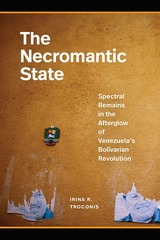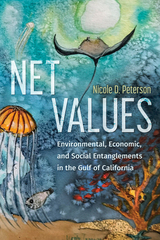7 start with T start with T
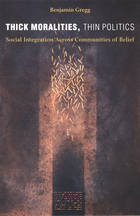
Thick Moralities, Thin Politics grapples with the work of theorists from both sides of the Atlantic, including Jürgen Habermas, Anthony Giddens, and Niklas Luhmann, as well as George Herbert Mead, Erving Goffman, and Harold Garfinkel. Gregg develops a model of validity for arguments made in the public sphere, for understanding among competing worldviews, and for adjudicating disputes generated by normative differences. He applies his theory of politics to specific issues of contemporary social life, including those relating to the place of women, minorities, and multiculturalism in American and European society today. He also addresses the scientific study of religion, issues of legal interpretation, and the critique of ideology, in each case illuminating how different epistemic systems, as well as competing value systems, can achieve some understanding of one another. Gregg demonstrates, ultimately, that thin politics actually further, rather than reduce, citizens' engagement in the political process.
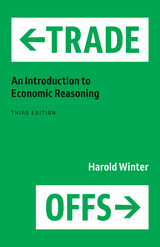
The highly engaging introduction to thinking like an economist, updated for a new generation of readers.
When economists wrestle with any social issue—be it unemployment, inflation, healthcare, or crime and punishment—they do so impersonally. The big question for them is: what are the costs and benefits, or trade-offs, of the solutions to such matters? These trade-offs constitute the core of how economists see the world—and make the policies that govern it.
Trade-Offs is an introduction to the economic approach of analyzing controversial policy issues. A useful introduction to the various factors that inform public opinion and policymaking, Trade-Offs is composed of case studies on topics drawn from across contemporary law and society.
Intellectually stimulating yet accessible and entertaining, Trade-Offs will be appreciated by students of economics, public policy, health administration, political science, and law, as well as by anyone following current social policy debates.
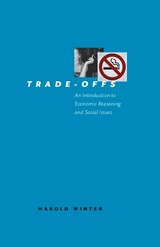
Harold Winter provides readers with the analytical tools needed to identify and understand the trade-offs associated with these topics. By considering both the costs and benefits of potential policy solutions, Winter stresses that real-world policy decision making is best served by an explicit recognition of as many trade-offs as possible.
Intellectually stimulating yet accessible and entertaining, Trade-Offs will be appreciated by students of economics, public policy, health administration, political science, and law, as well as by anyone who follows current social policy debates.
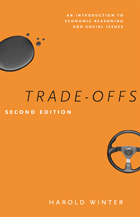

Transatlantic Policymaking in an Age of Austerity integrates the study of politics and public policy across a broad spectrum of regulatory and social welfare policies in the United States and several nations of Western Europe. The editors and a sterling list of contributors look at policymaking in the 1990s through the present—providing a comparative politics framework—stressing both parallel development and the differences between and among the nations. Similar prevailing ideas and political factors can be identified and transatlantic comparisons made—providing for a clearer understanding of the policymaking process.
Faith in regulated markets and the burden of rising welfare costs are concerns found on both sides of the Atlantic. Western democracies also share political climates colored by economic austerity; low trust in government, pressures from interest groups, and a sharply divided electorate. Because of differing political processes and differing policy starting points, a variety of disparate policy decisions have resulted.
Real world policymaking in the areas of welfare, health, labor, immigration reform, disability rights, consumer and environmental regulation, administrative reforms, and corporate governance are compared. Ultimately, the last decade is best characterized as one of "drift," sluggish changes with little real innovation and much default to the private sector. In general, policymakers on both sides of the ocean, constrained by economic necessity, have been unable to produce policy outcomes that satisfy the key segments of the electorate.
The contributors examine the United States, Great Britain, France, and Germany, as well as a number of other European countries, and study the European Union itself as a policymaking institution. Transatlantic Policymaking in an Age of Austerity distills the prominent issues, politics, and roles played by governmental institutions into a new understanding of the dynamics of policymaking in and among transatlantic nations.
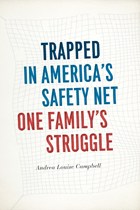
As a social policy scholar, Campbell thought she knew a lot about means-tested assistance programs. What she quickly learned was that missing from most government manuals and scholarly analyses was an understanding of how these programs actually affect the lives of the people who depend on them. Using Marcella and Dave’s situation as a case in point, she reveals their many shortcomings in Trapped in America’s Safety Net. Because American safety net programs are designed for the poor, Marcella and Dave first had to spend down their assets and drop their income to near-poverty level before qualifying for help. What’s more, to remain eligible, they will have to stay under these strictures for the rest of their lives, meaning they are barred from doing many of the things middle-class families are encouraged to do: Save for retirement. Develop an emergency fund. Take advantage of tax-free college savings. And, while Marcella and Dave’s story is tragic, the financial precariousness they endured even before the accident is all too common in America, where the prevalence of low-income work and unequal access to education have generated vast—and growing—economic inequality. The implementation of Obamacare has cut the number of uninsured and underinsured and reduced some of the disparities in coverage, but it continues to leave too many people open to tremendous risk.
Behind the statistics and beyond the ideological battles are human beings whose lives are stunted by policies that purport to help them. In showing how and why this happens, Trapped in America’s Safety Net offers a way to change it.
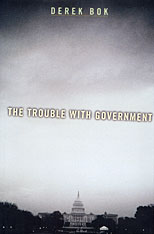
In the past thirty years, Americans have lost faith in their government and the politicians who lead it. They have blamed Washington for a long list of problems, ranging from poor schools to costly medical care to high rates of violent crime. After investigating these complaints and determining that many are justified, Derek Bok seeks to determine the main reasons for the failings and frustrations associated with government.
Discounting three common explanations--deteriorating leadership, the effect of the media on the political process, and the influence of interest groups--Bok identifies four weaknesses that particularly need explaining: a persistent tendency by Congress to design programs poorly; to impose expensive and often quixotic regulations that produce only modest results; to do less than other leading democracies to protect working people from illness, unemployment, and other basic hazards of life; and to leave large numbers of people, especially children, living in poverty.
Bok goes on to explore the reasons for these fundamental weaknesses and to discuss popular remedies such as term limits, devolution, "reinventing" government, and campaign finance reform. While some of these proposals have merit, Bok finds a deeper, more troubling paradox: Americans want to gain more power over their government, but are devoting less time to exerting a constructive influence. Their dissatisfaction with government is growing as their participation in the political process is declining. These contradictory trends, Bok argues, contribute to the problems of our democracy. Fortunately, there are many concrete steps that Americans can take to be politically engaged and to help their government improve its performance.
"Democracy," Bok concludes, "is a collective venture which falters or flourishes depending on the efforts citizens invest in its behalf."
READERS
Browse our collection.
PUBLISHERS
See BiblioVault's publisher services.
STUDENT SERVICES
Files for college accessibility offices.
UChicago Accessibility Resources
home | accessibility | search | about | contact us
BiblioVault ® 2001 - 2025
The University of Chicago Press





